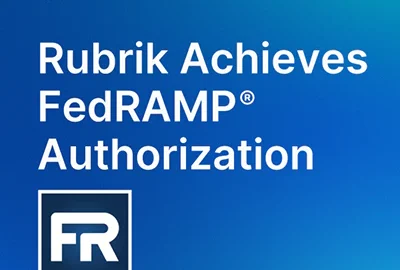Insight by Coupa
Industry Exchange Cloud 2024: Coupa’s Bill Evanow, Tom Voshell on spend management across the enterprise
The two federal leaders from Coupa explain how to use a cloud platform to gain control over simplified acquisitions.
Agency technology staffs have a relatively easy task in moving applications and data to the cloud. More challenging: controlling costs once they’ve made the move. A spend management plan should therefore be part of any cloud migration plan.
Bill Evanow, vice president of federal accounts at Coupa, put it this way during Federal News Network’s Industry Exchange Cloud 2024: “Spend management is the process of tracking, controlling and optimizing organizational expenditures.” It helps the IT staff maximize use of available resources and control costs — optimize for efficiencies, Evanow said.
The efficiencies extend beyond getting the most out of each cloud dollar to “managing procurement, supplier relationships, invoicing, budgeting, things like that,” he said.
Spend management connects the workflows of functions such as accounts payable and procurement. “You’re essentially breaking down the silos,” Evanow said. “That’s for visibility, that’s for accountability, and that’s for controls — and it’s an ongoing thing.”
Such unification becomes especially important when government operates under a continuing resolution, which now can stretch to half the fiscal year.
CRs limit agencies from starting new projects, while ensuring basic operations continue.
“You want to make sure that you’re still supplying what you need,” said Tom Voshell, vice president for the Federal Program Office at Coupa. “If you need printer paper, you’re not going to stop buying printer paper because there’s a continuing resolution.” Spend management helps ensure the agency buys at the best price from the right contracts, Voshell said.
In short, spend management can improve the acquisition of everything from strategic buys such as cloud computing services, to the supplies needed to keep offices going, he said.
One area Voshell said he observes agencies having trouble dealing with is purchases coming under simplified acquisition rules — those in the micropurchase range of $10,000 up to $250,000.
Simplifying management of simplified acquisitions
“It’s in those simplified acquisitions where the government has the biggest challenges right now,” Voshell said. Agencies mostly use credit cards for micropurchases from established multiaward vehicles. They spend a lot of time on requirements, market research and crafting of requests for large purchases.
But “when you get into simplified purchasing or simplified acquisitions, a lot of that becomes bogged down in manual process,” he said. “So the area Coupa addresses, and where the big problem in the government, is in that simplified acquisition.”
Automation of requisitioning, populating requisitions with the correct charge codes and routing them only to the required signatories, can speed up the turn time on simplified purchases, Voshell said.
“End user gets to buy [an item] off of a catalog,” he said. “Real simple, couple of clicks. Contracting gets all of the purchase requisition paperwork filled out properly, and it’s approved properly.”
Coupa aids this by having connections to the application programming interfaces of agency systems for resource planning, finance and contracting. Voshell said the cloud-hosted Coupa platform is more a process automation tool than a data analytics one.
“What Coupa does is the actual purchasing,” he said, setting up the request, obtaining authorizations, seeking bids from authorized vendors and issuing a purchase order.
“It’s not a view into an existing system and pulling up the data,” Voshell said. “It’s a reengineering of the procurement process that automates and simplifies, but yet adheres to all the financial requirements that an agency or company has to adhere to.”
Some simplified acquisitions are more complex than others — for example, professional services as opposed to maintenance or landscaping.
Evanow said Coupa specializes in this area.
“We have a very robust professional services organization,” he said. “We would augment a third-party partner, a government contractor that we may be going to bid with, to deliver success on training or best practices.”
The company also offers artificial intelligence-driven pricing guidance from the sum of purchases — totaling in the trillions — by Coupa’s industry customers, all anonymized.
Voshell said the AI looks at the aggregated data “and says, OK, when you say you want to buy a computer, what is everybody paying for a computer like that.”
Discover more articles and videos now on Federal News Network’s Industry Exchange Cloud 2024 event page.
Copyright © 2025 Federal News Network. All rights reserved. This website is not intended for users located within the European Economic Area.
Tom Temin is host of the Federal Drive and has been providing insight on federal technology and management issues for more than 30 years.
Follow @tteminWFED






